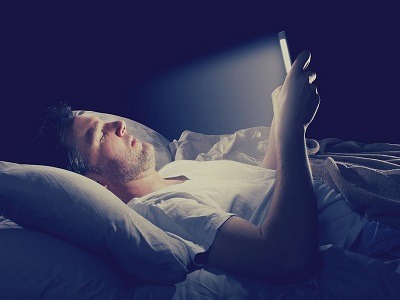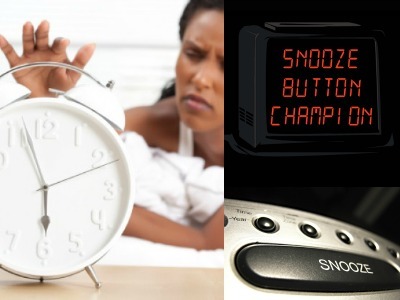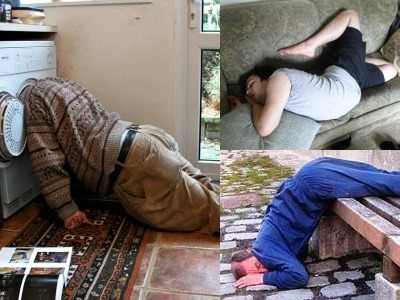By Hope Imaka – EM TV Online
Sleep, one of the many important things we crave for. Our body needs time to rest and rejuvenate itself for another day filled of activity.
As much as it is a necessity, and as much as it is a natural occurrence, people sometimes struggle to get that well deserved and desired sleep.
Here are 12 tips on how to get that golden cycle of sleep we all crave for.
1. Avoid the screens right before bed

Studies have shown that the light from cell phones and other electronic devices may interfere with our brain’s production of melatonin, the chemical that tells our bodies it’s time to sleep.
So for you people who like to take the millionth “one last scroll” of your Facebook newsfeed; stop it altogether.
A tip to tackle this habit: try powering your devices down an hour before you head to bed. It’ll help.
2. Avoid “social jet-lag” by keeping consistent sleeping hours

We all love the weekend sleeping in, and extended bed time we get to have, but honestly, it isn’t going to do you any good at all.
Unlike regular jet-lag, this one only happens when our body clocks get thrown off by the gap between our weekend and weekday sleep schedules. You can avoid it by waking up at the same time each day.
3. Exercise regularly

Studies show that regular exercisers sleep better and feel less sleepy during the day. Regular exercise also improves the symptoms of insomnia and sleep apnoea and increases the amount of time you spend in the deep, restorative stages of sleep.
This point however has its condition; do not exercise right before bed. Exercise heats up the body temperature and wakes the body. You will have a lot more difficulty trying to go to bed if you work-out before bed.
4. Eat a diverse diet

Studies have found that the amount of time people slept was linked to the type of food people ate.
“Normal Sleepers” (those who got seven to eight hours of shut-eye each night) tended to eat a more diverse diet.
5. Stay away from caffeine, starting six hours before bed

Caffeine is one of the best ways to get an energy boost in the morning, but if you consume it too close to bed time, it could cause some sleeping problems.
A small study of 12 healthy normal sleepers who took caffeine pills zero, three, or six hours before bed found that the participants had the best nights of sleep if they didn’t have caffeine within at least six hours of sleeping. Big surprise.
You might be surprised to know that caffeine can cause sleep problems up to ten to twelve hours after drinking it! Consider eliminating caffeine after lunch or cutting back your overall intake.
6. Cuddle up in a bedroom that’s cool

Your environment plays a very big part to your sleeping habits.
Studies suggest there’s an optimal temperature for sleeping: 15 to 18 degrees Celsius if you’re wearing pyjamas and have a blanket and 30 to 32 degrees Celsius if you prefer to wear less on. Scientists think that when our bodies cool down, it helps jump-start the sleep process.
It is for this very point that it is strongly advised not to work-out before bed, as stated above. HEATED BODY = NO SLEEP.
7. Know how much sleep you need. It changes with age

As you grow, your body changes and so do your sleeping needs. Here’s the recommended number of hours of sleep you need depending on your age group according to studies found.
0 to 3 months: 14 to 17 hours
4 to 11 months: 12 to 15 hours
1 to 2 years: 11 to 14 hours
3 to 5 years: 10 to 13 hours
6 to 13 years: 9 to 11 hours
6 to 13 years: 9 to 11 hours
14 to 17: 8 to 10 hours
18 to 64 years: 7 to 9 hours
Over 65 years: 7 to 8 hours
8. Skip the snooze button. Your body will thank you

It can be tempting to sleep in on weekends, but even a couple hour differences in wake time disrupts your internal clock. The quality of sleep you get after hitting snooze is less than if you just continued sleeping for those 10 extra minutes. And by falling back to sleep, you’re setting yourself up for another sleep cycle that you have no chance of finishing.
The more your weekend/weekday sleep schedules differ, the worse the jetlag-like symptoms you’ll experience. If you need to make up for a late night, opt for a daytime nap rather than sleeping in. This strategy allows you to pay off your sleep debt without disturbing your natural sleep-wake rhythm, which often backfires in insomnia and throws you off for days.
9. Avoid night cap

Though alcohol does allow healthy people to fall asleep quicker, it reduces REM sleep – the phase of sleep associated with deep dreaming. Disruptions in REM sleep may cause daytime drowsiness.
Solution:
Opt for herbal teas, such as camomile, which have a sedative effect.
10. Don’t sleep like this

If you’re experiencing aches and pain, and you have a harder time falling asleep; it’s about time you reassess your sleeping position.
Research has suggested that people who sleep on their sides are less likely to experience aches and pain as compared to those who prefer any other position.
11. If you’re a teen, try to avoid waking up at the crack of dawn

For teens, we might want to rethink the whole strategy of waking up at the crack of dawn.
Middle- and high-school students are in the midst of a sleep-deprivation crisis.
To combat this, researchers suggests a later start to the day. The American Academy of Pediatrics recommends that middle and high schools should not start before 8:30 a.m. A recent study by the US Department of Health also advocates for later school start times.
12. Get some Sun!

Spending long days in an office away from natural light, can impact your daytime wakefulness and make your brain sleepy.
- Expose yourself to bright sunlight in the morning – The closer to the time you get up, the better. Have your coffee outside, for example, or eat breakfast by a sunny window. Skip the sunglasses! The light on your face will help you wake up and feel more alert.
- Spend more time outside during daylight – Try to take your work breaks outside in sunlight, exercise outside, during the day instead of at night.
- Let as much natural light into your home or workspace as possible – Keep curtains and blinds open during the day, and try to move your desk closer to the window.
- Expose yourself to bright sunlight in the morning – The closer to the time you get up, the better. Have your coffee outside, for example, or eat breakfast by a sunny window. Skip the sunglasses! The light on your face will help you wake up and feel more alert.
- Spend more time outside during daylight – Try to take your work breaks outside in sunlight, exercise outside, or walk your dog during the day instead of at night.
- Let as much natural light into your home or workspace as possible – Keep curtains and blinds open during the day, and try to move your desk closer to the window.
Exposing yourself to more sunlight will help get you much more needed sleep.


